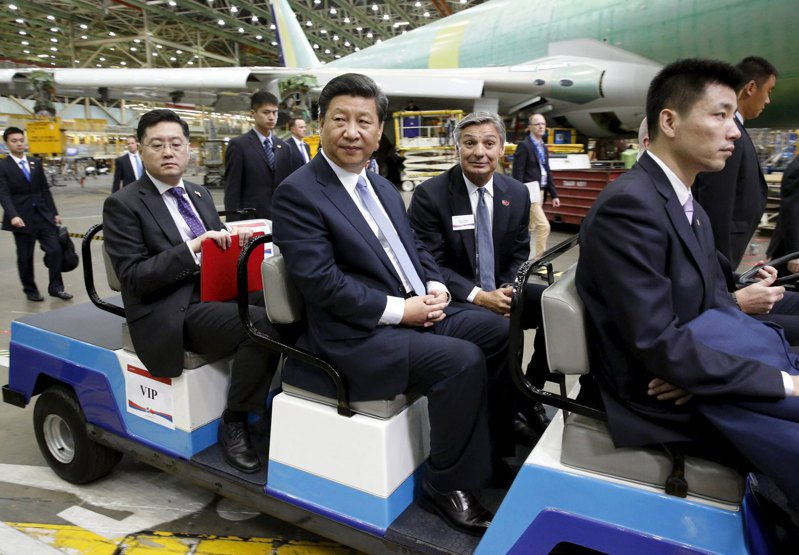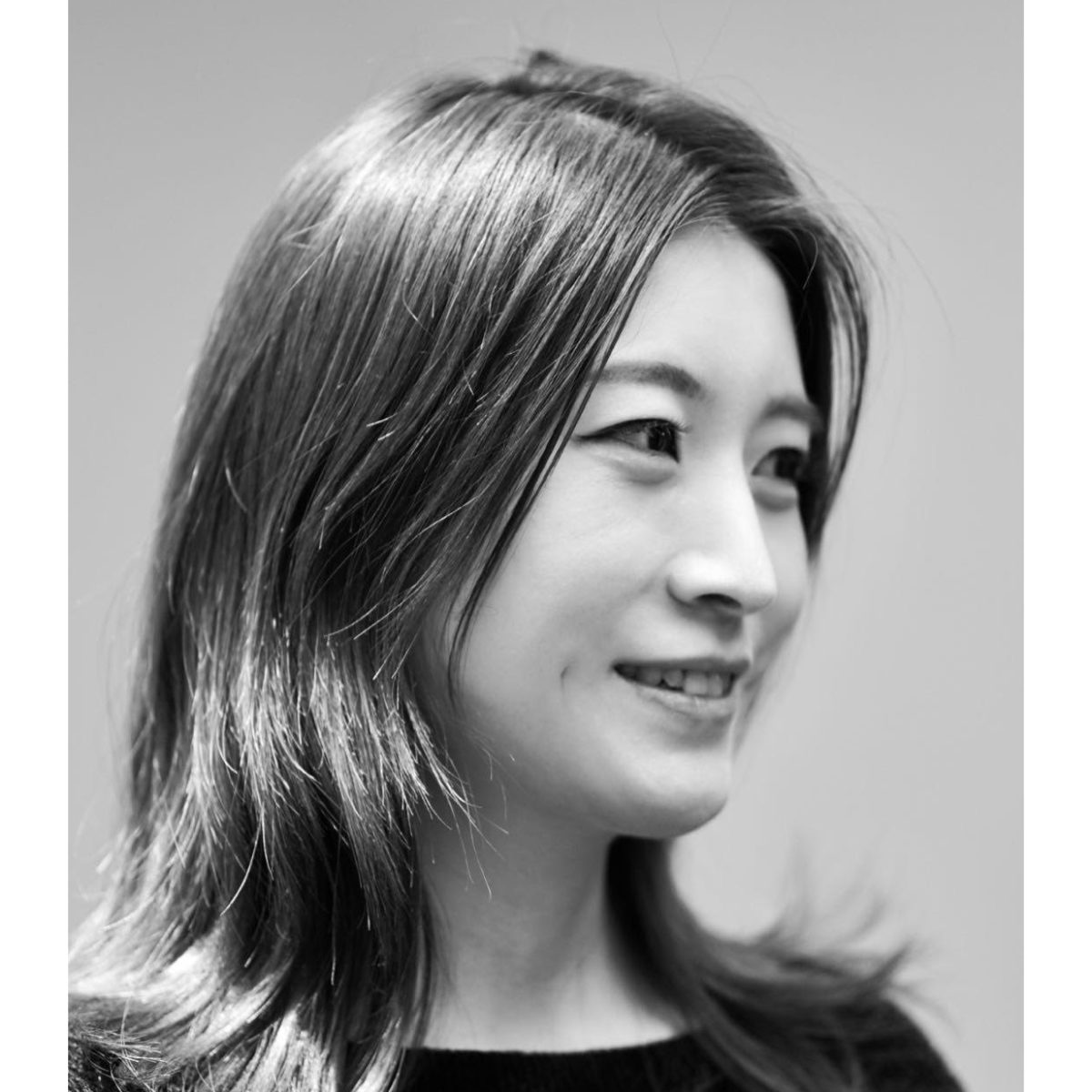Who is Qin Gang, China’s new ambassador to the U.S.?
China’s new ambassador to the United States seems to have the ear of top leader Xi Jinping. While he has not (yet) earned the sobriquet “wolf warrior” in press reports, he’s no shrinking violet.

Qín Gāng 秦刚, China’s new ambassador to the U.S. arrived in Washington D.C. today.
Qin is one of China’s vice foreign ministers. Since joining the Foreign Ministry in 1988, Qin has steadily risen up the hierarchy from junior aide to ministry spokesperson to vice minister responsible for overseeing European affairs and protocol.
Between 2006 and 2014, Qin served two stints as Foreign Ministry spokesman.
In recent years, he has accompanied top leader Xí Jìnpíng 习近平 on multiple trips overseas and is considered a trusted aide to Xi.
In 2016, Qin helped organize conferences and events for Xi as he hosted the Group of 20 leaders’ summit in the eastern Chinese city of Hangzhou. At one point, the Chinese leader turned to Qin, asking half-seriously if he could take a break from the schedule of back-to-back events. The exchange, recounted by people who participated in the summit, resulted in laughter and lightened the mood.
What tasks and challenges will Qin Gang face in his new role?
Qin is expected to start coordinating with the U.S. on addressing lists of requests and concerns that China gave Deputy Secretary of State Wendy Sherman during consecutive meetings with Chinese Vice Foreign Minister Xiè Fēng 谢锋 and Foreign Minister Wáng Yì 王毅, though the two sides remain far apart on many of the issues.
Observers argue that addressing some of Chinese’s lightweight requests, for example, relaxing visa restrictions on Chinese students and official media outlets, could be a pragmatic way to jump-start improvement of the fraught relations. Other demands like lifting sanctions imposed over Xinjiang and Hong Kong are likely to go unmet.
Qin Gang is likely to play an important role in coordinating the prospective face-to-face summit between U.S. President Joe Biden and Xi Jinping, possibly at a Group of 20 summit in October.
Qin Gang also has catching-up work to do on building up his own network of contacts in D.C. Unlike his immediate predecessor, Cuī Tiānkǎi 崔天凯, who at 68 was the longest-serving ambassador to the U.S. and is known for his strong relationships with key U.S. interlocutors, Qin has no prior U.S.-related experience.
Is Qin Gang a “wolf warrior” diplomat?
Qin has embraced an assertive and often abrasive approach, even prior to the coining of the term “wolf warrior diplomacy.” Among foreign journalists, he is known for sharp rebuttals as spokesman for the Chinese Foreign Ministry. In February 2021, in response to a German journalist’s question on China’s “wolf warrior” diplomacy at a press briefing, Qin struck a strident tone and said other countries and peoples who “blatantly smeared China” are “evil wolves.”
But in contrast with canonical wolf diplomats who bicker on Twitter with foreign journalists, promote conspiracies about the origins of COVID-19, and troll American officials on race and discrimination, the Wall Street Journal suggested that Qin is seen as “a measured career diplomat rather than a high-wattage warrior” who comes to define the reputation of Chinese diplomats overseas.
Others have noticed his polished demeanor. An Australian journalist once recalled Qin’s water-sipping routine at every press conference he hosted: He would first scan the whole room, then slowly take a sip of water placed on the podium before greeting the room of journalists.
How did Qin Gang get the job?
The details are murky. Qin’s appointment took many observers by surprise. Due to his lack of involvement in managing U.S. affairs, Qin was not previously considered as even a remote candidate in the race to succeed Cui. In a surprise move late last year, the leading contender Zhèng Zéguāng 郑泽光 was assigned to be China’s ambassador to the U.K. Other hopefuls once included deputy foreign ministers Mǎ Zhāoxù 马朝旭, Lè Yùchéng 乐玉成, and the above-mentioned Xie Feng.
Observers say that Qin Gang really saw his career take off in 2014 when he was promoted to be head of the ministry’s protocol department, a post that provides a rare opportunity to foster closer relationships with top leaders, especially Xi Jinping.
Qin is not the first to have been rewarded for his dedicated service. Zhāng Yèsuì 张业遂, the ninth Chinese ambassador to the U.S., was once in charge of the protocol department of the Ministry of Foreign Affairs. At the 2000 UN Millennium Summit, he managed to arrange for a photo op for then Chinese president Jiāng Zémín 江泽民 along with the other four permanent members of the UN Security Council. Through Zhang’s maneuver, the beaming Jiang stood right in the center of the photo, surrounded by leaders from France, Russia, the U.K., and the U.S.
Jiang was so pleased with Zhang’s work that he fast-tracked his promotion. In 2000, Zhang was promoted to assistant foreign minister. Three years later, he was promoted to deputy foreign minister, where he was in charge of policy research, regional affairs in Africa, Europe, North America, and Oceania, arms control, and treaty law.
What do we know about Qin Gang’s views on key issues that concern Beijing and Washington leadership?
It’s probably too early to tell. But Qin certainly does not shy away from being contentious, and at times, combative.
In response to the publication of the U.S.’s 2006 human rights report, Qin Gang presented the U.S. with a “gift,” a copy of the Confucian text Four Books and Five Classics, along with a thinly veiled threat quoting the ancient sage: “He said that ‘a well-cultured person should first keep his heart upright, refine his soul, and then regulate the family well so as to contribute to good governance of the country and work to build a harmonious world’…We suggest the U.S. have a careful study of his works,” Qin said.
When the U.S. military flew planes over the East China Sea air defense identification zone (ADIZ), Qin Gang urged reporters to look up what the term paper tiger meant.
He defended China’s ballooning defense spending, half-jokingly telling reporters that the Chinese People’s Liberation Army was not a “children’s corps” equipped with red-tasseled spears, and that despite external pressures, China would not stay “as a boy scout.”
Qin has repeatedly brushed off the U.S.’s rhetoric on countering China, concluding that “whether [the intention of President Obama to skip China on his four-state Asia trip] was to counter China or not…I’d say China is right here, whether he comes or not.”
In 2009, when a BBC reporter asked Qin Gang about the justification for compulsory installation of Green Dam Youth Escort filtering software on personal computers, ostensibly to block pornography, Qin retorted and asked the reporter if she had children or planned to have children. He went on to draw an analogy between a parent’s concern about harmful information on the internet and the Chinese government’s active role in promoting “the healthy development of the internet.” In response to a journalist’s question about YouTube being blocked in China, he famously said, “As for what you can and cannot watch, watch what you can watch, and don’t watch what you cannot watch.”
Qin also showed his paternal control tendency in 2008. Qin fired back at American rock band Guns N’ Roses, whose album title Chinese Democracy offended some, by saying that “many people don’t like this kind of music” and that it is “too noisy and clamorous.”
A Russian scholar recalled an interaction with Qin Gang at which there were other foreigners present. Qin was asked whether the officials at the Foreign Ministry had read the emerging nationalistic publications loosely under the umbrella name “China Is Not Happy/China Can Say No” and if they agreed with their authors. Refraining from giving a straight answer, Qin simply said, “We can agree that China has always been offended by other world powers, and now China’s interests are being infringed. We have to respond to that.”
The key question: How much access does Qin Gang have to Xi Jinping?
The White House’s top official for Asia, Kurt Campbell, once remarked during a conference that there is a “smaller and smaller group” of people who help shepherd Xi Jinping’s decision making, and that China’s top diplomats Yáng Jiéchí 杨洁篪 and Wang Yi were “nowhere near within 100 miles” of Xi’s inner circle, despite Campbell’s “great regard for both men” and his belief that “they are able representatives of China.”
Campbell added that the Chinese foreign policy establishment understands that the country’s policies have helped to cause a global backlash. “But is that getting through to the most inner circle in the Chinese leadership?”
Will the close relationship Qin Gang has nurtured over the years with Xi Jinping help him get access to the top decision-making echelon? That’s a question we can’t answer.






